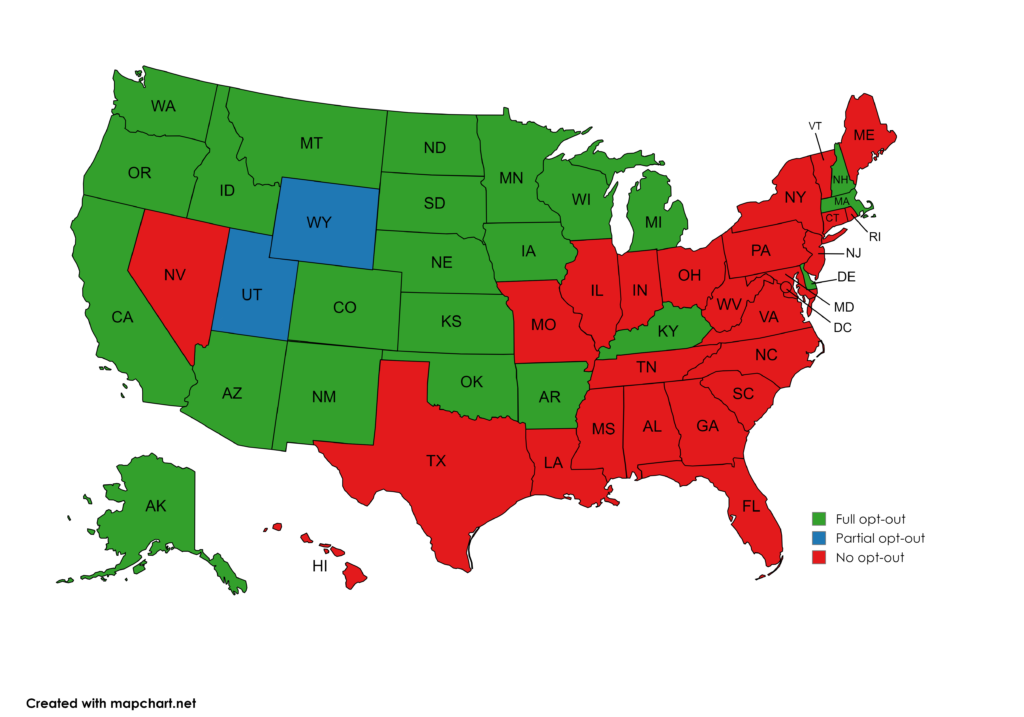Practice in Your State
Louisiana Practice Law & Requirements
Are advanced degrees currently required?
Are advanced degrees currently required?
Advanced practice registered nursing’ means nursing by a certified registered nurse anesthetist, certified nurse midwife, clinical nurse specialist, or nurse practitioner which is based on knowledge and skills acquired in a basic nursing education program, licensure as a registered nurse, and a minimum of a master’s degree with a concentration in the respective advanced practice nursing specialty . . . .” [Louisiana Rev. Stat. sec. 913, para. (3)(a)]
Out-of-State Applicants: “The board may by endorsement issue a license to practice as an advanced practice registered nurse if the applicant has practiced as an advanced practice registered nurse under the laws of another state and, in the opinion of the board, has met the requirements of Paragraph (A)(2)”[Louisiana Rev. Stat. sec. 920, para (B)(2)]
Paragraph (A)(2) requires APRNs who “completed or enrolled in a formalized post-basic education program” prior to December 31, 1995, (1) to have
completed a “formal education program preparing graduates to practice specialized and advanced nursing practice,” and (2) to hold current certification. Applicants who enrolled in an APRN program after January 1, 1996, are required to have “a minimum of a master’s degree with a concentration in the respective advanced practice nursing specialty. . . .” [Louisiana Rev. Stat. sec. 920, para (A)(2)]
Additional provisions: The Louisiana Board of Nursing adopted the following rule (c) to allow the BON to review and approve an APRN applicant who graduated without a graduate degree after December 31, 1995. This is beneficial for CRNAs, since all nurse anesthesia programs were not required to be at the master’s degree level until December 31, 1998. “4507. Licensure as Advanced Practice Registered Nurse
A. Initial Licensure
1. The applicant shall meet the following requirements:
…
b. completion of a minimum of a graduate degree with a concentration in the respective advanced practice nursing role and population focus or completion of a post master’s concentration in the respective advanced practice nursing role and population focus from a program accredited by a nursing or nursing related accrediting body that is recognized by the U.S. secretary of education and/or the Council for Higher Education Accreditation (CHEA) and otherwise approved by the board. Exception to the graduate degree may be granted to those applicants who provide documentation as requested by the board that, prior to December 31, 1995, the applicant completed or was continuously enrolled in a formalized
post-basic education program preparing for the advanced practice nursing role and population focus as approved by the board prior to December 31, 1995 as follows …
c. any deviation from Clause 1.b shall be submitted to the board for review and approval….” [Louisiana Board of Nursing rules, LAC 46:XLVII.4507]
Is there an explicit new graduate provision?
Is there an explicit new graduate provision?
The educational and certification requirements “shall not apply to a graduate nurse anesthetist awaiting certification results, provided that the application for certification is made as soon as possible upon completion of the prescribed educational program in a school of anesthesia and provided further that this is the initial attempt for passage of the certification examination.” [La. Rev. Stat. 37 sec. 930(B)(3)]
Do dentists require a permit/training to use a CRNA?
Do dentists require a permit/training to use a CRNA?

Do CRNAs have prescriptive authority?
Do CRNAs have prescriptive authority?

New DEA MATE Act Requirements
Congress has passed the MATE Act requiring all CRNAs who need to renew or are applying for a DEA license to complete a one-time training (totaling 8 hours) on managing patients with substance use disorders. View our FAQs below to learn more about this requirement and for information about our new DEA Bundle to help you meet this requirement.
FAQs
- Who is required to complete these requirements?
CRNAs renewing their DEA license or applying for an initial DEA license. - Can AANA help me fulfill these requirements?
Yes, AANA has developed a collection of CE offerings to satisfy these requirements which includes 8 Class A CE (designated as 8 pharmacology credits). This bundle will be available to stream starting June 7 but can be preordered through CKN. - When do I need to complete these requirements?
Starting on June 27, 2023, all CRNAs who are applying for a new DEA license or are renewing their DEA license. - The AANA is not listed as an approved provider. Will CE offered by the AANA meet this requirement?
Yes, through our accreditation with the American Nurses Credentialing Center (ANCC), AANA meets the requirements to offer these CE credits. - How do I report the completion of this requirement?
CRNAs will self-report completion during their DEA licensing process. CRNAs who complete DEA Bundle through the AANA will receive individual certificates documenting the completion of the training. This should be retained as proof of training.
Do Anesthesiologist Assistants (AAs) have authority to practice?
Do Anesthesiologist Assistants (AAs) have authority to practice?

Has Louisiana opted out of the federal supervision requirement?
Has Louisiana opted out of the federal supervision requirement?

Are physician office settings regulated in my state?
Are physician office settings regulated in my state?

State Licensure
State Licensure
CRNAs are a type of “advanced practice registered nurse.”
Advanced practice registered nurses must meet certain requirements in order to obtain a license to practice in Louisiana. [Louisiana Revised Statutes, sec. 920]